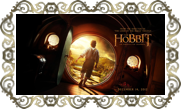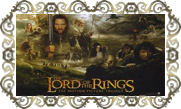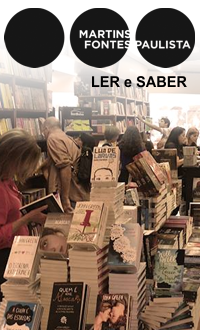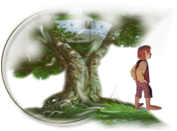

| Early this morning I wrote about the updated edition of The Power of the Ring - The Spiritual Vision behind The Lord of the Rings and The Hobbit, a guide to vision of virtue, heroism, beauty, honor, and majesty in The Lord of the Rings and The Hobbit by J.R.R. Tolkien. I'm extremely happy and honored to bring an interview with the author Stratford Caldecott. I'm very grateful to him, for all the effort and time, and his publisher Crossroad Publishing Company, a leading independent publisher dedicated to providing distinctive perspectives on spiritual living and religious thought, to make this possible. It has to be said that I have been searching for answers to several questions on Tolkien for years and that this interview has touched me deeply. Stratford Caldecott is a very special person, who manages to give a clear view on Tolkien and his works, with words that any of us understand. Somehow he brings answers to questions that were in front of our eyes and remained hidden for us. I'm extremely happy to share this interview with all of you and hope it brings the same joy to many! One thing is certain, I'm going to order his updated edition of The Power of the Ring - The Spiritual Vision behind The Lord of the Rings and The Hobbit, and re-read it all over again. And I believe many will do so after reading this interview. |
TL: Dear Stratford Caldecott, can you tell us a little about yourself?
SC: Let’s see. I grew up in South London in the 1960s, and won a scholarship to Oxford to study philosophy and psychology a decade later, where I met my future wife, the writer Léonie Caldecott. My mother Moyra was a writer too – a poet and novelist, a lover of legends and folklore and fairytale – and my father was a publisher, so I had grown up in a house full of books. But it was not a religious household, because my father was a “freethinker” and my mother, though a Christian and a deeply religious soul, didn’t see much good in organized religion. Both of them were drawn towards the New Age movement. After university, I followed my father into the publishing trade. I became a Senior Editor for a firm in London and later for a few years in Boston, and then back in London again. Eventually my wife and I settled down in Oxford, and a few years ago started our own business. We have three lovely daughters, one of whom works with us as the manager of our little organization, Second Spring Oxford.
TL: As a writer of books you must be a reader as well. What did you like to read when you were young? What were the books that inspired you?
SC: Of course, I did read a lot. In fact I was often ill as a child and so I became a bit of a bookworm. I loved fairy tales and legends, but also other kinds of adventure novels, and non-fiction geeky books about science, especially astronomy and physics. My parents even bought me a telescope. Later on, in my teens, I became more and more interested in the writings of philosophers and mystics. That may sound a rather eclectic list of enthusiasms (what the kids call “random”), but there is a common thread that I can see now, looking back. It was all about a Quest. Most adventure stories involve a quest of some kind, in search of treasure, perhaps, or the hand of a princess; and so do science and philosophy in their own way. In that case it’s a quest in search of truth, a search for the meaning of reality, but it’s just as much an adventure.
TL: When did you first encounter the books by J.R.R. Tolkien and how did they impact your life?
| SC: I read Tolkien quite early, The Hobbit first, along with hundreds of other children’s books at home and in the local library, but very soon after it I discovered The Lord of the Rings, because my father was one of the work’s early publishers, before it became a cult paperback. He was in charge of of the Readers’ Union book clubs, and he printed an edition of the three volumes in 1960 that I still have on my shelves (I’m sad to say a bit dog-eared by now). It felt as though a whole new world had opened up in front of me. I must have read them more than a dozen times, and in a way they helped to shape my whole life thereafter, strengthening my love of nature and wisdom and virtue, and my interest in the power of the human imagination. |
TL: You have been recently going through some hard times. I truly hope you are feeling better. I remember myself some years ago passing time in hospital and it were the books by Tolkien that kept me going and not give in. Can you also find courage and strength in his books?
SC: Yes. Unfortunately I have cancer and am not likely to recover. Sometimes I don’t have the energy to read, but when I do one of the things I like to do is read The Hobbit or The Lord of the Rings aloud to my youngest daughter – she’s grown up now, but she still enjoys being read to, and she missed out when I did it for the others when they were all little. There is something about Tolkien’s imagined world that lifts your spirit. (Lots of people have noticed this.) Yes, you can find courage and strength there. In fact the stories are all about that process, about how to grow as a person, and ultimately they are about how to face disaster and even death in the right spirit. Tolkien shows how you can come to see death as a gift instead of just a curse, because it brings us face to face with a great mystery, the mystery of the Creator – the source of all the great beauty and goodness that we find in the world. There is another important point, too. The characters in Tolkien’s story sometimes stop and reflect that they, too, are part of an ongoing tale, just like the heroes that they have read about. We can learn from Tolkien to stop and reflect in the way that Sam and Frodo do. Stories can help us discover who we are, and reveal the meaning of our real-life struggles, which often seem so pointless at the time. There is a place in Tolkien’s story for failure, and depression, and illness, as well as for battles and victories and the unexpected. Tolkien is telling us that our lives make sense as part of a greater story that one day will be told in full – when “death shall be no more” (Rev. 21:4).
TL: From reading your book I know you also like other works by Tolkien, like The Silmarillion. What is your favorite book by Tolkien (at the moment)?
SC: I do love The Silmarillion – it is so rich. I am also haunted by his short stories, especially the one called “Leaf By Niggle,” a sweet little story about death and dying, which I find very deep and consoling.
TL: I'd like to talk about your book, The Power of the Ring: The Spiritual Vision Behind The Lord of the Rings and The Hobbit. What prompted you to write the book?
SC: It started with some lectures I gave and articles I wrote to people who were interested in Tolkien. Then I realized that I had more and more to say. I wrote some more, and suddenly I found I was writing a book.
| TL: In what does your new book differ from your previous one, The Power of the Ring: The Spiritual Vision Behind the Lord of the Rings, or Secret Fire before that? SC: It is the same book, but revised and expanded. The publishers originally gave the UK edition of the book a different title (Secret Fire), and I felt that was very confusing, but it’s sorted out now and all the revisions and improvements that I have wanted to make over the years have all been included. There is a new chapter on The Hobbit, of course! And I hope that as the three Hobbit movies come out in the next few years, people will find the revised edition of my book helps them understand the context and deeper meaning of the story and the whole world of Middle-earth. |
TL: The majority of Tolkien fans are still not aware that the author was a devout Roman Catholic. Is this the main reason you wanted to give us your book?
SC: Not entirely, but that was part of it. Mine was one of the first books that really looked into Tolkien’s religious beliefs as an influence on his writing, and I remember giving lectures to audiences who really and truly thought he was some kind of pagan or New Ager. His books do appeal to pagans and nature-lovers, of course, and that is a good thing. But he also has a profound spiritual dimension that goes a lot further than anyone realizes, and it is that I wanted to get at, to uncover – but without spoiling the story for anyone; in the contrary, I wanted people to appreciate and enjoy his writing even more! I wanted them to realize that these books are not just entertainment, or escapism, or self-indulgence, but tremendously profound works of literature that deserve to be read and studied, not just by children, but by adults as well, and by believers as well as non-believers. The more we study these books, the more there is to say about them.
TL: Do you feel connected to Tolkien, being a Catholic scholar who lives in Oxford, England?
SC: Very much so. I wish I had overlapped with him and met him in person, but he died in 1973 when I was just starting out. Still, his presence and his memory are pervasive in Oxford, and you can’t go anywhere without seeing houses where he lived, colleges he worked in, streets he walked or cycled, and churches where he worshipped. I know several people who remember him personally, either as a lecturer or as a friend. He and C.S. Lewis, together with their friends in the Inklings group that used to meet every week, have really left their mark here. Now I teach courses and classes on them, and I meet large groups every year who come to Oxford from all over the world, drawn by the love of these writers and a fascination with their work and lives.
TL: Your book really explains all Catholic elements that lie hidden inside The Hobbit. I never expected so much to be inside a children book!
SC: I am glad you feel that way. But remember that children’s books are often the deepest and most interesting. Just ask G.K. Chesterton (another English writer I admire). Tolkien in any case never wrote just for children; he wrote for human beings, and people of any age can enjoy his stories. TL: Do you feel that non-Catholics can also enjoy your book?
SC: I think so – in fact many non-Catholics have told me they enjoyed it. I would say that knowing more about Tolkien and his personal beliefs takes nothing away from the appreciation of the books, but it can add something. After all, Tolkien did not write his story as a work of propaganda, trying to convert the reader. But he learnt much wisdom from his faith, and this helped him to write a better book, a book that was full of a kind of grace, a spirit of kindness and courage and hope. If some people find it a problem that he was a Catholic and learnt these things from his Christianity, then I am sorry for them. I am sure most people won’t be put off by the kind of Catholicism that I write about. TL: I was so impressed with the chapter “Behind the Stars.” It is among the deepest commentaries on Tolkien's work as a whole. How did you find the inspiration to write texts like these?
SC: One of the things that makes my book different from most others that have been written about Tolkien, even the ones that have now been written about Tolkien’s Catholicism, is that I have a strong interest in theology. Perhaps this gives me an insight into some of the religious influences that were at work in Tolkien’s writing, since I am convinced he was not merely a believing, faithful Christian writer, but a deeply theological one. He was not a professional theologian, of course, any more than I am, but he understood his faith much more deeply, and had thought about it more profoundly, than many who do call themselves theologians. In the chapter you refer to at the end of my book, many of these theological threads are brought together. The writer I found most helpful as I ventured into this theological dimension was Hans Urs von Balthasar, one of the great minds of the 20th century and a big influence on recent popes. Balthasar’s “theological aesthetics” helps us to see the theological implications of literature. TL: Do you believe The Lord of the Rings and The Hobbit can be seen as purely Catholic works or are there other elements in there, just as our own society, that also have a strong place inside of the written word?
| SC: There are certainly many other influences. Tolkien drew from a vast number of sources and experiences when he wrote. In fact I once organized a conference at his old Oxford college, Exeter, to discuss some of these influences [see the book of the conference at http://www.walking-tree.org/cormareBookInfo.php?number=18]. He was a cultured man, and he draw not just on religious beliefs but on his vast knowledge of languages and history, mythologies and traditions, literature and folklore, in order to make the world he created as rich and believable and fascinating as it was. He wanted it to have something of the “texture” of reality. You can only achieve that by bringing together a huge number of varied elements. |
TL: What sources did you use to write your book?
SC: My book? Well of course I started with as much of Tolkien’s own writing as I could find. Not just the two novels we have been talking about so far, but the books that never got to be published during his lifetime, for example the twelve or so volumes called “The History of Middle-earth,” plus the lectures and short stories and so on. I was lucky that much of the research on original manuscripts and on his biography had been done and published by scholars such as Humphrey Carpenter, Christopher Tolkien, Tom Shippey, John Rateliff, and others. TL: What special qualifications do you have for making this study? What makes you different from your colleagues?
SC: I can’t claim to be more qualified than others for this task, but I was driven by a love of the subject. I felt and still feel a sympathy and close affinity to Tolkien. In addition, my particular religious history and interests gave me an insight into his spirit and way of thinking that isn’t shared by everyone. Of course, there are now very many books about Tolkien as a Christian writer, and many of them are very good. Several are written by great scholars. My book does not claim to be definitive, but it tries to get to the heart of things without getting lost in the detail, and maybe that was enough justification for writing it.
| TL: When reading The Scouring of the Shire in The Lord of the Rings, don't you think it was a missed opportunity in the movie adaptation when they left that part out? SC: I do. That was the worst failing of Jackson’s film, I believe, because those scenes were very important to the novel and to Tolkien’s purpose in writing it. I know it would have added to the length of the movie to include it, but think a lot of other scenes could have been shortened or omitted to make room for it. It is important because on one level the story is all about how the hobbits go through all their adventures in distant lands to acquire the virtues with which to confront the evils back home. Tolkien wanted us to see that we, too, in the modern world, need to acquire those virtues and confront those same evils. Without the Scouring of the Shire, the story looks much more like the “escapist entertainment” that people have accused it of being. |
TL: What is your hope for your readers?
SC: I hope that my book will help them appreciate what is true and good and inspiring about Tolkien’s writing. I would want them to be able to go back to The Hobbit and The Lord of the Rings refreshed and interested to read them again; and to go on from there to read the other things by Tolkien – the lovely short stories, the Silmarillion, and the published Letters especially, in which we see him as a Christian struggling to live a good life and to fulfill his vocation. TL: When working on the research, did you discover new things about Tolkien? Something unexpected?
SC: I discovered (in a French book by Michael Devaux) that Tolkien was good friends with the theologian Louis Bouyer, who used to visit him when he lived in Headington just outside Oxford and have long chats. Bouyer (a friend of Balthasar) greatly admired what Tolkien had achieved. I was happy to learn this because it confirmed my feeling that The Lord of the Rings could be appreciated theologically on a sophisticated level, even though it was set in a pre-Christian era, and did not deal explicitly with religious questions. TL: Do you, just like me, find Tolkien life and personal story as interesting as the books he created?
SC: Yes. The more I studied him and his writing the more I was fascinated by him. He is a very complex, multi-faceted man; a good man, and, I would guess, in a hidden way a sort of mystic. Though he was writing fantasy, he was also writing out of his own experience – his experience of the War, of love and marriage, of raising children, of friendship, of dreaming, of everyday life in the modern world…. He was sad in some ways, but in touch with infinite sources of joy. I think this comes out especially in the Letters of J.R.R. Tolkien, edited by Humphrey Carpenter, which I recommend to anyone who wants to get to know Tolkien better, as a person and as a writer. TL: Just out of curiosity, do you have any Tolkien books in your house and what is your biggest treasure?
SC: I have never been wealthy enough to collect Tolkieniana, so I don’t have anything special. I do have a little library of books by and about him. My father’s old copies of The Lord of the Rings mean a lot to me, since when I pick them up I remember turning the pages on Middle-earth for the first time. TL: One final question. Did you go to see The Hobbit movie by Peter Jackson and how did you like it? Do you feel like another edition of your book needs to be written now? The movie does differ quite a lot from the book, or don't you feel that is the case?
SC: I wrote the book with The Hobbit in mind – and with the film in mind too. I don’t think I’ll need to revise the book again. But I have to be honest and say I’ve not yet seen the movie, much as I want to. My illness so far has prevented me getting to the cinema. But I have read a lot of reviews, seen a lot of clips, and heard lots of descriptions and opinions from my daughters and friends, and even from people who knew Tolkien. Most of those people have very mixed feelings, and some of them hated it. Clearly Jackson has introduced a lot of scenes and ideas that were not present in the book. He wanted to integrate it with the story he had already told in The Lord of the Rings. Now there is nothing wrong, in my view, with his borrowing material from outside The Hobbit to fill out the background and expand the story. If the previous movies and the comments of my friends are anything to go by, at least some of what Jackson has done is brilliant, and a few of the scenes capture the spirit of the book well enough. But then he also plays up the horror, the violence, the sense of dread, at the cost sometimes of the contemplative atmosphere in the book which I think is very important. It shouldn’t all be about running and fighting and killing. This is in my view certainly a failing of the previous films. But what Jackson wanted was an action movie, and that’s what we ended up with. Let’s hope that future generations continue to read the books, and to discover how much more depth and subtlety there is in the original stories by Professor Tolkien.
| Title: The Power of the Ring: The Spiritual Vision Behind the Lord of the Rings and The HobbitAuthor: Stratford Caldecott Publisher: The Crossroad Publishing CompanyPublication Date: December 4, 2012Type: paperback, 256 pages, second editionISBN-10: 082454983XISBN-13: 978-0824549831 |
Spread the news about this J.R.R. Tolkien article:














